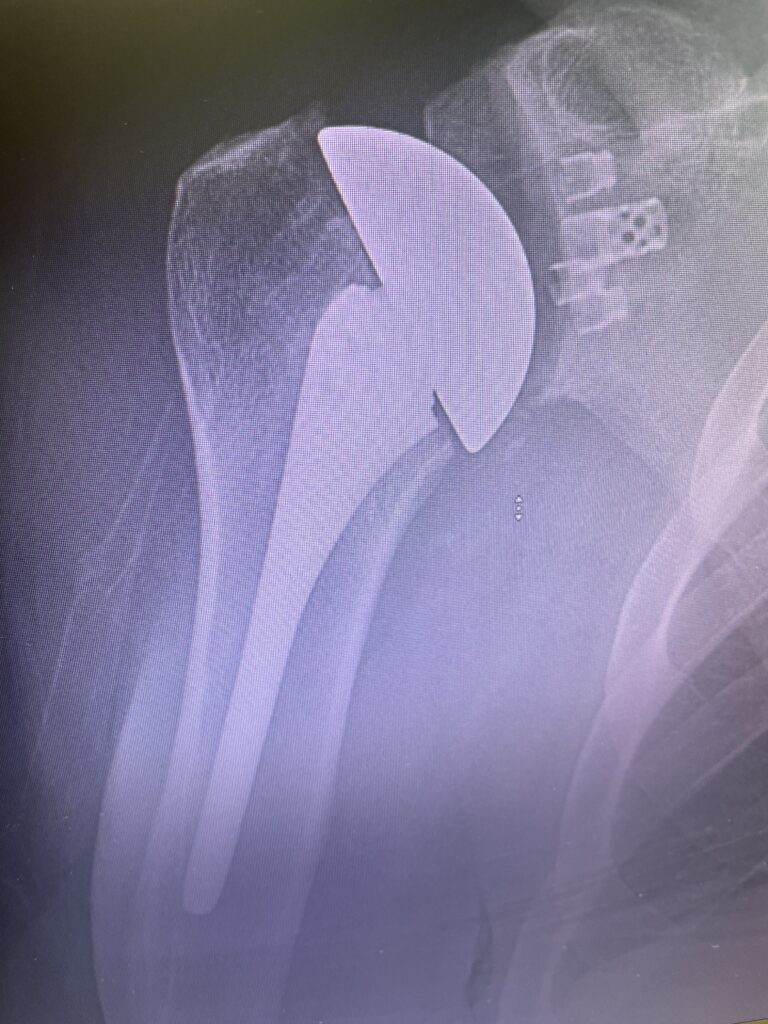A recent presentation at the American Academy of Orthopedic Surgeons annual meeting by Harvard Professor Jon J.P. Warner M.D. concluded that when shoulder surgeons perform a higher volume of shoulder replacement procedures, they have lower complication rates.
Shoulder replacement is a technically demanding procedure. To master the procedure surgeons need many years of training. This study supports the idea that surgeons should also perform this operation often in practice in to have a low complication rate. What are potential complications of shoulder replacement surgery?
Potential complications of shoulder replacement surgery include, stiffness, infection shoulder instability, shoulder dislocation and hardware malfunction. There are other complications unique to the reverse shoulder replacement such as scapular notching, impingement and acromial stress fracture. Experience allows a surgeon to anticipate complications and prevent them. Over time In a practice like mine I often treat revision scenarios in which I operate on cases from other surgeons that may have had complications.

Dr. Warner ‘s conclusions make common sense: the more one does of something, the better they perform. A few weeks ago we had to replace a sump pump in our basement. I called a plumber that does hundreds per year. I wanted the plumber who was doing that “procedure” often.
At the writing of this post I have been in full time surgical practice for almost 14 years focusing on shoulder and elbow surgery. Over those years I have performed around 50 or more shoulder replacements per year with current trends moving closer to 100 per year range.
When choosing a surgeon for your shoulder replacement a good place to start would be to ask how many of that specific operation they do per year.
